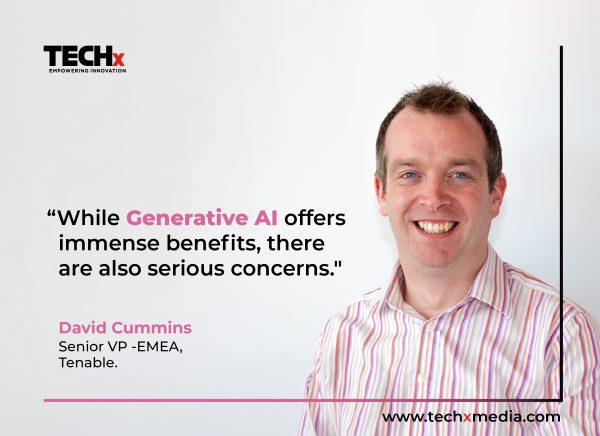
A new study by Tenable®, Inc. reveals that 68% of organisations plan to integrate generative AI (GenAI) into their security measures within the next year. The study indicates a growing trend among businesses to align IT objectives with broader business goals through the use of GenAI. However, only 17% of these organisations express high confidence in their ability to effectively implement these technologies, highlighting a significant challenge in the adoption process.
The study, titled “How to Discover, Analyze and Respond to Threats Faster with Generative AI,” was conducted by Forrester Consulting on behalf of Tenable. It surveyed 826 IT and cybersecurity professionals from large enterprises across various regions, including Australia, Brazil, France, Germany, India, Mexico, Saudi Arabia, Japan, the UK, and the US. The findings highlight the increasing interest in GenAI as a tool to enhance security measures, but also raise concerns about the potential risks and challenges associated with its implementation.
According to the study, 41% of organisations view GenAI as a greater security threat than an opportunity, reflecting widespread concerns about cybersecurity risks. Additionally, 50% of respondents expressed worries about the internal misuse of GenAI, underscoring the complexities involved in integrating advanced technologies into existing systems. These concerns are further compounded by the critical role of data quality in the success of GenAI initiatives. The study reveals that 74% of respondents believe the effectiveness of GenAI depends heavily on the quality of data utilised by organisations, highlighting the need for robust data governance and management strategies.
David Cummins, Senior VP of EMEA at Tenable, commented on the findings: “While GenAI offers immense benefits, there are also serious concerns surrounding security, governance, and data quality. GenAI can help bring data together from various sources, making it easier for organisations to understand and manage these complexities. However, it’s imperative that these decisions are based on reliable data. If you have unique data, then you’re going to have unique intelligence guiding decisions — or ‘gold in, gold out.’”
Cummins also noted that every organisation’s attack surface is expanding with the growing use of cloud services, virtualisation platforms, microservices, applications, and code libraries. This expansion creates vulnerabilities, cloud misconfigurations, and risks tied to identity access, groups, and permissions. He emphasized that if harnessed correctly, GenAI can help security teams quickly identify exposures, prioritise actions, and see connections across the entire attack surface.
Tenable®, Inc. is a leading provider of exposure management solutions, helping organisations worldwide understand and reduce cybersecurity risks. The company offers a comprehensive suite of tools to identify and manage vulnerabilities, ensuring that security measures align with broader business objectives.
As digital threats continue to evolve, the integration of GenAI presents both opportunities and challenges for organisations. While there is optimism about its potential to enhance security measures, the journey towards effective implementation requires careful consideration of data quality, governance, and the mitigation of potential risks.